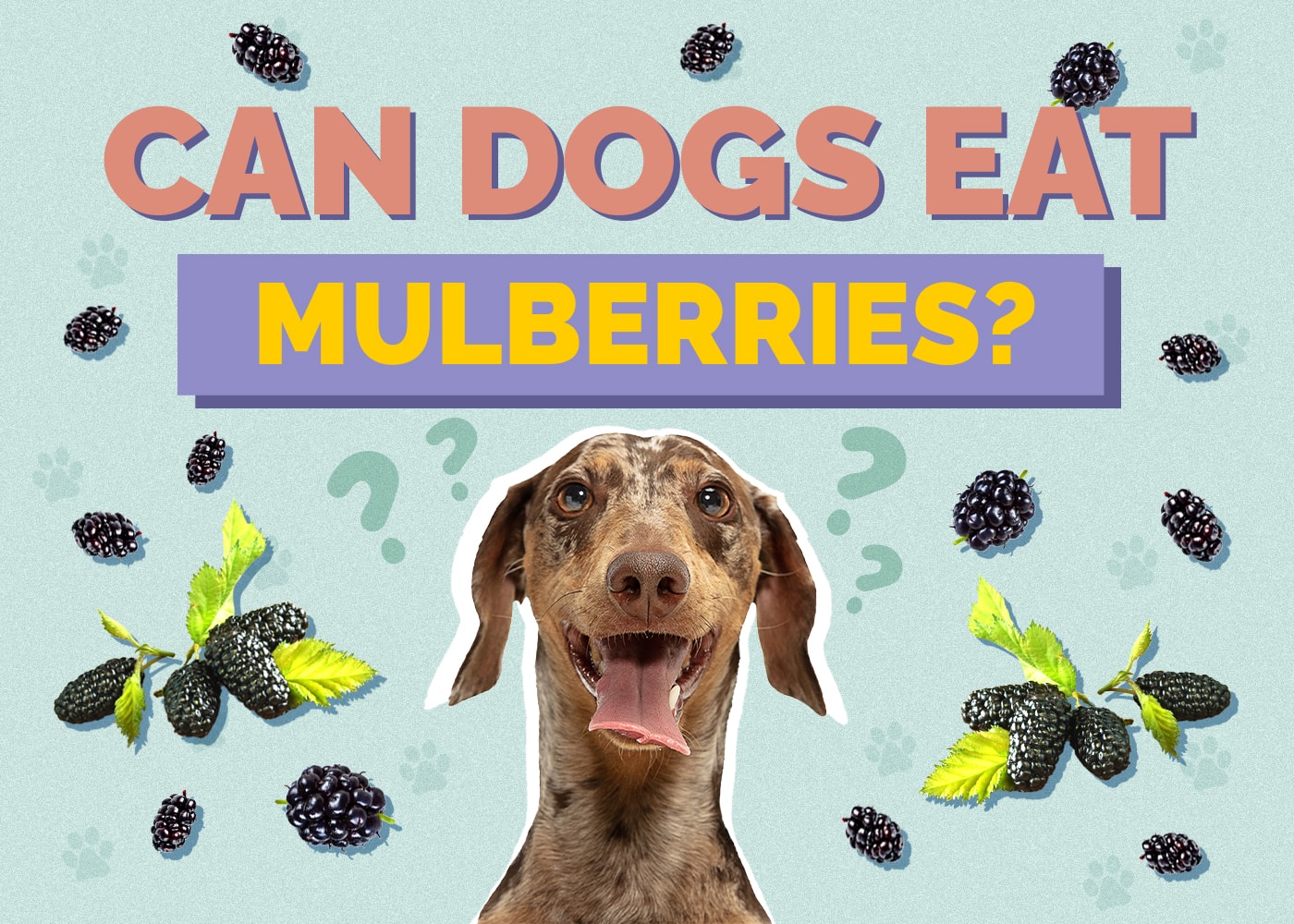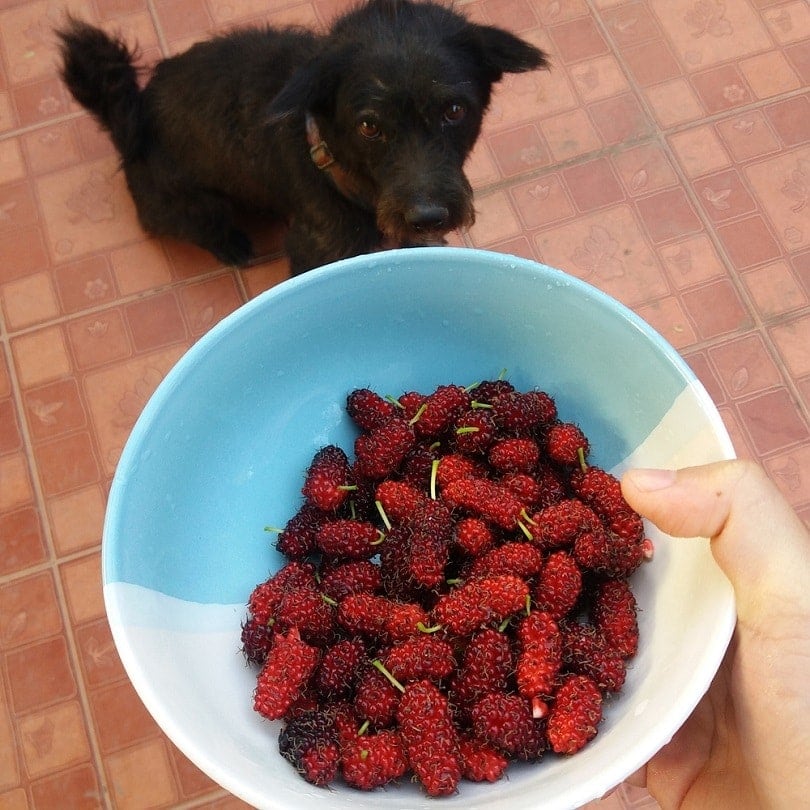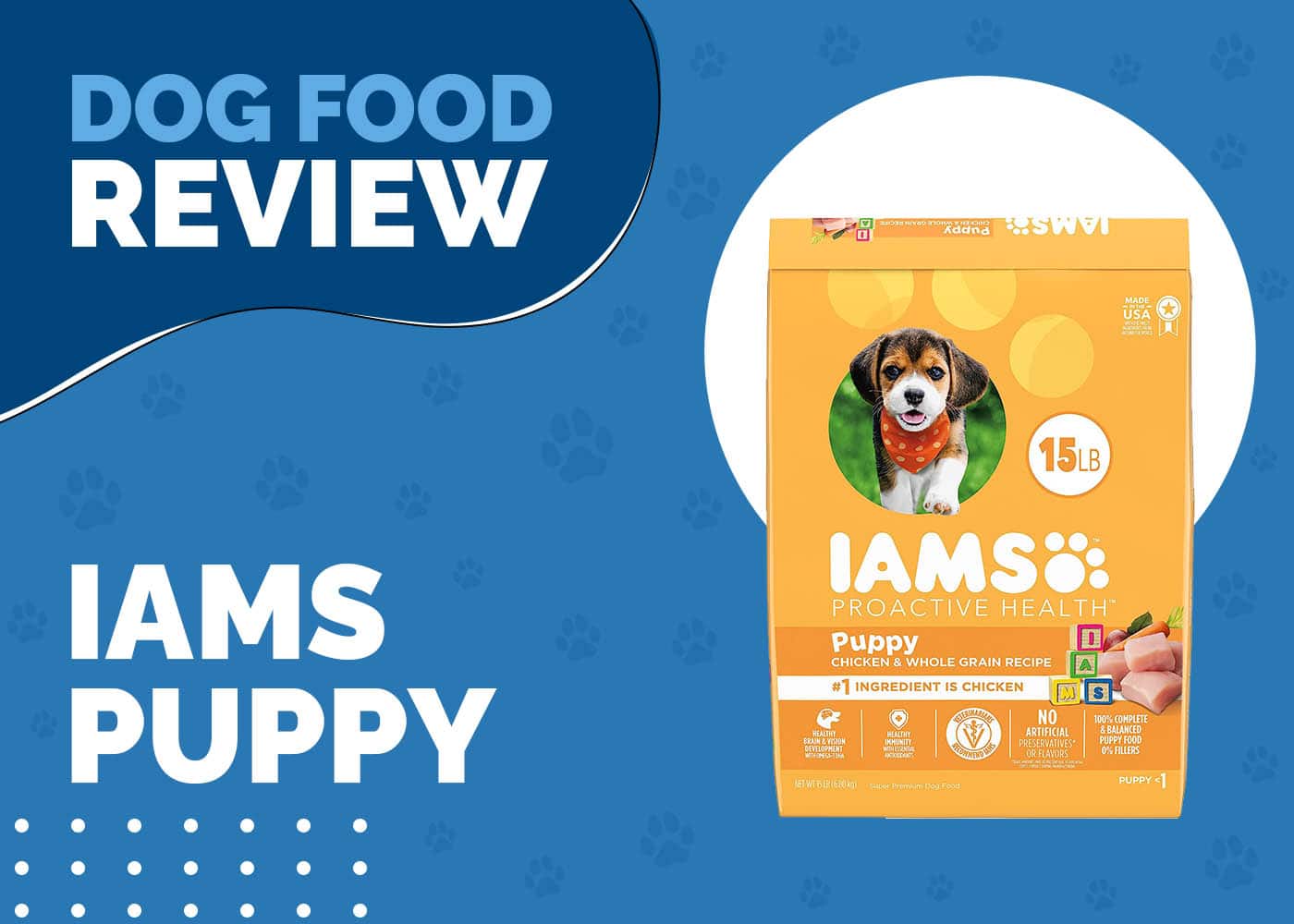Can Dogs Eat Mulberries? Vet-Reviewed Health Benefits & FAQs

Updated on

Depending on the area that you call home, mulberries may grow all over the place. They take root in the yard and quickly form bushes that can take over large corners of the garden. If you can’t control the growth, how are you supposed to control your dog when they are outside and want a quick snack?
Since mulberries are one of the more common berries, it is helpful to know whether they are harmful to your dog. If they take a quick bite, will they be alright? The short answer is yes, dogs can eat mulberries, but there are caveats. Keep reading to find out more about why this berry is safe, along with other berries you might want to keep a closer eye on if you see your dog edging towards them.
 Can Dogs Eat Mulberries?
Can Dogs Eat Mulberries?

Typically, dogs can have a small number of ripe mulberries. They are not toxic to dogs and will easily travel through their digestive system without wreaking havoc along the way.
Mulberries are a natural fruit that doesn’t present much of a danger to your pup. Dogs are primarily carnivores, so they shouldn’t eat too many mulberries or they will start to feel ill, and their stool could become much runnier. No one wants that, but it is easily avoided by limiting the number your dog consumes.
Dogs won’t generally do more than taste them once or twice. If you notice that they do not handle even a couple of these berries very well, avoid introducing them into their diet again.
Unripe Mulberries
Why did we specify that dogs should only eat ripe mulberries?
Just as humans aren’t the biggest fans of unripe fruit, don’t encourage your dog to snack on them either. Unripe mulberries have a much higher chance of causing an upset stomach for your pup than when they are fully ripe.
Perhaps the more concerning thing is that unripe mulberries have also been known to cause hallucinations. All types of mulberries are hallucinogenic when they are in their unripe form, since they contain a white sap that causes these stimulating effects. As they ripen, they use and change those chemicals that would typically cause hallucinations.
Health Benefits of Mulberries for Your Dog

Fresh mulberries are largely made up of water. They contain about 60 calories in each cup. When they are fresh, they are about 80% water, 1.4% protein, 1.7% fiber, 0.4% fat, and 9.8% carbohydrates.
You can also find mulberries dried, which will decrease the amount of water and will concentrate their carbohydrate levels. However, feeding your dog dried fruit is never recommended, since the juices and sugars are so much more concentrated in that form, which can be harmful to them.
- Acts as a source of antioxidants
Antioxidants are essential in the diet of almost all living things. They help fight free radicals at the cellular level, protecting the organs and bodily functions. Resveratrol is one of the primary antioxidants in mulberries, and it has been studied for its positive effects on canines, and it can help boost their immune system.
- Aids digestive health in small amounts
Mulberries give the digestive system an easy boost. They contain high levels of both soluble and insoluble fibers. Both of these make digestion much more manageable, although they can make it too smooth if consumed in large amounts. It is because of these fibers that overeating mulberries cause your pup to experience an upset stomach.
- Enhances the blood’s circulation
The high percentage of iron in mulberries boosts the production of red blood cells in a dog’s body. They help oxygen to reach throughout the body, getting to all of the cells and muscles.
- Builds healthy bones
As if mulberries don’t already seem packed with plenty of goodness, they also contain calcium, vitamin K, and trace amounts of magnesium and phosphorus. All of these are key drivers to create a healthy skeletal structure. They can also help speed up recovery after being hurt.
- Protects their brains
Repairing bones quickly isn’t the only benefit mulberries have when it comes to healing. They also positively impact when they reach your brain, enhancing the systems that work to repair brain cells. They help your dog excel during training or fortify them as they grow older.
Potential Dangers of Mulberries for Your Pup
Have you ever heard the phrase “everything in moderation”? When it comes to mulberries and their relationship to dogs, this principle applies. Limit the amount that you feed them, and their benefits won’t reverse themselves to cause any upset stomachs and unhappy puppies.
When you first introduce them to your dog, observe them carefully to ensure they won’t have an allergic reaction to the berries. It is rare for a dog to be sensitive to them, but still worth watching for initially.

Serving Mulberries to Your Dog
Mulberries are best served to your pup just how nature intended, fresh from the plant once they are ripe. Feeding them a couple of berries to start with is more than enough for them to get the taste. Doing so in such a small amount also allows you to test for any sensitivity they could have towards them.
Baking mulberries into treats is not a good idea since it will typically allow them to have too many at once. Baking them also chemically breaks down some of the compounds in mulberries that are so beneficial for your pup.
Instead, give your dog about a handful of fresh mulberries. Only do this once every couple of days and always monitor how they feel afterward to ensure you aren’t overdoing it. There can always be too much of a good thing.
Toxic Berries for Dogs
Mulberries aren’t the only common berry your dog can have access to when on a walk or wandering around the yard. Not all berries are healthy for your dog, with some of them being dangerously toxic.
If your pup likes mulberries, they might be more inclined to eat a berry straight from the plant. Watch out for these toxic berries when you are out and about, or take them out of your yard if you allow your dog to wander alone.
- Juniper berries
- Pokeberries
- Baneberries
- Holly berries
- Cherries
- Mistletoe berries

Summary
Dogs can eat mulberries and reap many benefits from them. They are a source of antioxidants that provide health benefits. The key to your dog having mulberries is to limit their consumption to a handful every several days at a maximum. Watch out for any potential allergies, and don’t let them eat them from a bush directly, since you can’t always be certain what they are snacking on.
Related Reads:
Featured image credit: BoyKat, Pixabay

 Can Dogs Eat Mulberries?
Can Dogs Eat Mulberries?











